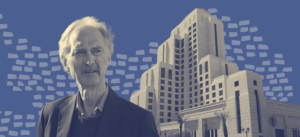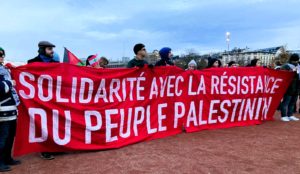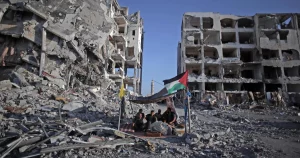“(…) we actually live in a world in which human beings as such have ceased to exist for quite a while, since society has discovered discrimination as the great social weapon by which one may kill men without any bloodshed; since passports or birth certificates, and sometimes even income tax receipts, are no longer formal papers but matters of social distinction”.
Hannah Arendt, “We Refugees”, Menorah Journal31, no. 1 (January 1943): pp 69-77.
Why are we reading so much Hannah Arendt lately and are ashamed by the topicality of her choice of words? That alone should make us think, as she, like no other figure of the 20th century, has pointed to the creeping as well as subtle dehumanisation of millions of people that has taken place before the eyes of thousands of Europeans.
What happens to a society that watches people drown not just in front of their eyes – and here we should remember that the simulation of drowning alone is considered one of the cruelest torture methods of our time – but whose politicians refer to those fleeing in mortal fear as ‘asylum tourists’[1]or ‘a cargo of human flesh’[2]? To what extent must the dehumanisation of asylum seekers, evident in both linguistic and action-based dimensions, have progressed to explain why we as citizens of one of the world’s richest continents are actually discussing whether and to what extent we should engage in actions that save people from drowning?
Asylum, this simple principle of protecting humanity, has degenerated into a technical problem that needs to be solved. Those who seek and eventually find asylum in Europe are condemned to wander as everlasting petitioners through the camps and institutions that are supposed to be places where humanity is offered, not lost.
It seems like we are at a crossroads in Europe again. As if we, again, had to ask ourselves if we would like to attend the inhumane and deadly treatment of a particular social group who are viewed and treated as less deserving human beings.
The world needs humanity. But it needs the kind of humanity that understands that some things have been going badly for some time (if they’ve ever been going well). The kind of humanity that emerges in interaction and which keeps us going, even if it is challenging, because it is important. And everything that matters, needs attention and action.
We need humanity, here and now, in Europe and around the world. On World Refugee Day, let’s all take a step forward. We need to ally with people in our communities and elsewhere who are suffering from inhumanity. Show our faces for all those who, despite being deterred, arrested, intimidated and publicly defamed as public enemies, act in defence of our common humanity and refuse to be told that human dignity is conditional and depends on where you were born.
—
For an in-depth analysis on the issue of asylum, please download our report Asylum Criminalisation in Europe and its Humanitarian Implications.
[1]German Minister of Interior Horst Seehofer, July 2018: https://www.watson.de/deutschland/cdu/467916240-seehofer-provoziert-mit-asyltourismus-und-5-weitere-maischberger-momente
[2]Italian Minister of Interior Matteo Salvini, June 2018: https://medium.com/are-you-syrious/ays-daily-digest-25-06-2018-salvini-refutes-torture-in-libya-d5fe1efaa50a











